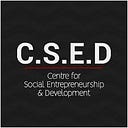How Technology can supercharge Social Enterprises : Two Case Studies
~By Om Patro
Technology has played a pivotal role in empowering social enterprises. It aids in streamlining operations, providing nuanced data analytic tools, and enabling a wider outreach through avenues such as social media engagement, content marketing, digital presence, webinars, email marketing, fundraising, and interconnecting diverse stakeholders. This integration of technology within social enterprises has significantly amplified their impact on society while maximizing their influence on pressing social and environmental challenges. The profound impact of technology on social enterprises becomes even more palpable when analyzing real-world case studies. In light of this, let’s explore two social enterprises where technology has played a huge role in the companies’ growth and progress.
Benetech
Benetech was founded by social entrepreneur, Jim Fruchterman in 1989 (under the name of Arkenstone) headquartered in the heart of Silicon Valley. Initially, it provided reading machines that were tailor-made for the visually impaired.Afterwards, between 1989 to 2000, these revolutionary devices had found homes in more than sixty countries, transcending linguistic barriers by accommodating twelve different languages. Arkenstone then reemerged as Benetech after the acquisition by Freedom Scientific in 2000. Capitalizing on the funding stemming from the asset sale, Benetech had started the Bookshare initiative and the Martus project in 2001, a manifestation of their commitment to leveraging technology for societal betterment.
Bookshare: Bookshare, an initiative by Benetech, stands as one of the world’s largest online libraries, offering a diverse range of e-books (short for electronic books, that are digital versions of traditional printed books) that are specifically designed for individuals with print disabilities, at a cheap price. A print disability refers to a condition that diminishes a person’s ability to read standard printed materials due to visual, physical, or cognitive impairments. Bookshare’s extensive collection comprises thousands of books including textbooks, reading materials, newspapers, magazines, and more. Members of Bookshare can enhance their reading experience by listening to e-books in audio, audio + highlighted text, books with braille, books with large fonts and also various other formats.
The Martus Project: Martus( derived from the Greek word for “witness”) is an open-source software application founded by Benetech. The core purpose of Martus is to provide a secure platform for storing and retrieving information that concerns human rights abuses. Through the Martus application, users can create records of these abuses, attach crucial supporting documents and store all of it in a secure server. Subsequently, the system ensures the safety of this information by employing strong encryption directly on the user’s computer. The encrypted data is then transmitted to the secure server if there is an internet connection. Martus also allows users to recover their data by securely backing up essential documents off-site. This ensures that users can access their documents even if they lose their device, without encountering any additional hassle.
mPedigree
mPedigree is a social enterprise (established initially as an NGO) founded by social entrepreneur and writer Bright Simons in 2007, that operates from its headquarters in Accra, Ghana.
mPedigree has fostered partnerships with more than twenty-four telecom operators, prominent Fortune 500 corporations, and regulatory agencies across multiple nations. The core theme that drives mPedigree’s endeavors is trust. The organization focuses on providing a solution for counterfeit drugs through a combination of mobile technology, cloud computing, and data analytics, which in succession ensures the authenticity of the product within the pharmaceutical store.
To ensure the customers’ trust for the pharmacist, the organization has come up with a unique solution where the organization, the pharmaceutical firms and other stakeholders, in tandem upload pedigree information from individual medicine packages into a centralized database. This process employs standardized mass serialization techniques akin to those used in the radio-frequency identification (RFID) barcode system familiar in developed nations like the United States. So, to verify the authenticity of a drug, the customer scratches off the label that hides the product code and then through an SMS (Short Message Service), the product code is cross-checked against the registry of authentic medications. If legitimate, the system then responds with instant verification, providing customers with confidence that the medicine purchased is not counterfeit.
Additionally, mPedigree utilizes data analytic tools to track and identify patterns of counterfeit drug distribution, allowing regulatory agencies and pharmaceutical companies to take targeted actions. The system’s cloud-based infrastructure ensures real-time monitoring and the ability to scale across different regions.
mPedigree’s groundbreaking system for tackling counterfeit medicines has spanned across numerous African nations, effectively safeguarding the interests of both the customers and the pharmaceutical companies. Additionally, this organization has significantly contributed to the public health of all these countries.
